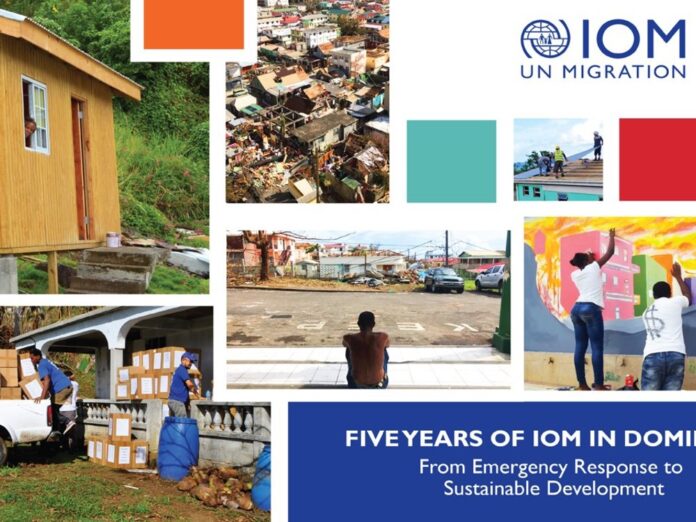
On Thursday 22 September 2022, the International Organization for Migration (IOM) commemorated five years of operation in Dominica. IOM was one of the first United Nations agencies to arrive in Dominica to support early recovery efforts, just five days after Hurricane Maria had battered the island. Much of the organization’s work has been related to ensuring safe shelter is available in the event of a disaster. On its anniversary, the organization donated 155 multi-lingual signs communicating the Rules & Regulations at Emergency Shelters in Dominica. The signs were donated with the generous support of the US State Department Bureau of Population, Refugees, and Migration (PRM) under the Western Hemisphere Program
At the Press Conference, which took place at the Office of Disaster Management in Jimmit, the Chairperson of the Emergency Shelter Sub-Committee, Glenroy Toussaint, spoke of the life-saving function of emergency shelters, and that emergency shelters needed to be inclusive spaces for local vulnerable people and also for migrants within the principle of leaving no one behind.
“This initiative is a continued effort between the NEPO Emergency Shelter subcommittee and IOM, recognizing the fact that when we talk of shelter management, we are looking at an approach that is all-inclusive, all-inclusive in the sense that irrespective of someone’s nationality, race, creed, religious or political belief, there is that overarching concern, that we have to have that responsibility for the safety of each and every person who is living in any state, island or jurisdiction.
And so, it’s on that premise of ensuring that the safety and security of every single one that no one, we are operating on the model that no one should be left out or overlooked.” IOM translated, designed, and donated 150 tri-lingual signs with the shelter Rules and Regulations in English, Haitian Creole, and Spanish, and 5 additional signs in English and Chinese Mandarin, to the NEPO sub-committee for distribution to all the designated emergency shelters across Dominica. Communications Assistant for IOM Maxine Alleyne-Esprit noted that this request was made by the NEPO sub-committee due to the recognition that migrants can have vulnerabilities due to the differences in their language, culture, use of different communications channels, and a lack of a local network in the host country. Communicating disaster mitigation, preparedness, and response messages to migrants can help to save their lives.

